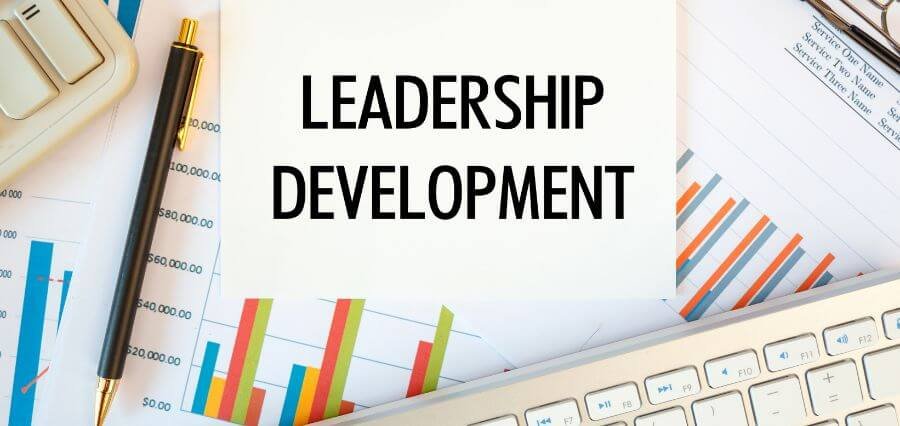Leadership Development is at the core of a successful business, especially in a time when change is the new norm. Organizations are no longer labeled as profitable or product-driven but as the quality of their leaders. The demand for adaptable, visionary, and emotionally smart leaders has elevated Leadership Development as a strategic necessity, not an option.
Since the rise of globalization, the demand for leadership culturally attuned has increased to unprecedented levels. This is being noticed particularly in newer hubs such as the Middle East, where Middle Eastern Leadership Development is experiencing a transformation—mixing up old values with future skills. Attention now is focused on developing leaders to drive change, innovate, and build workplaces inclusive in nature.
The Evolving Definition of Leadership Development
Traditional leadership models of hierarchy and authority are rapidly becoming obsolete. Modern Leadership Development is all about cultivating strategic thinking, empathy, communication, and resilience. Leaders must be able to cope with digital disruption, diverse workplace, and sustainability goals.
This remains especially the case for Middle East leadership that is being remade by national visions like Saudi Arabia’s Vision 2030 and UAE leadership in innovation and technology. Both nations are committing wholeheartedly to systemic programs building competencies aligned with future economic goals.
Why Leadership Development Is Non-Negotiable
Leadership is a multiplier. It transforms groups into high-performing units, ignites performance, and unleashes innovation. It is most likely that such an organization would have better profitability, customer satisfaction, and employee retention.
With more organizations venturing out to geographies, particularly into the Gulf Cooperation Council (GCC) states, Leadership Development in the Middle East is an ideal pillar of regional competitiveness. Leaders from here have global savvy combined with local smartness, which is the success mantra.
Pillars of Successful Leadership Development
- Self-Awareness: Having an understanding of personal values, drivers, and behavioral tendencies.
- Vision Alignment: Vision for the organization must be developed and exemplified by leaders.
- Emotional Intelligence: Ability to empathize, relate, and have a positive impact.
- Adaptability: Ability to handle uncertainty and change in a positive manner.
- Continuous Learning: Growth mindset is the pillar of Leadership Development in this day and age.
These pillars are all being utilized in corporate development, government programs, and even studies at Middle East Leadership. With Middle Eastern companies expanding their wings globally, these capabilities must be perfected.
Middle East Leadership Development: A Strategic Imperative
Middle Eastern nations are no longer reliant on foreign talent. Instead, they have a high chance of cultivating regional expertise. Public-private ventures and leadership institutes are empowering young professionals as well as women, especially in the UAE and Saudi Arabia.
Middle East growth in Leadership Development is a sign of the appreciation of how valuable human capital is as the region diversifies. Organizations are creating genuine and sustainable leaders with the development of custom programs that integrate local culture with best practices from around the world.
Digital Transformation and Leadership Readiness
Digital disruption has put leaders under another test. From the integration of AI to hybrid offices, leaders must be capable of managing technologies that upend business models within a matter of days.
As such, Leadership Development must also come with digital literacy, remote team management, and data-driven decision-making. These are being integrated into leadership programs, particularly in Middle East models of Leadership development.
Building Cross-Cultural Leadership Skills
The Middle East has one of the most diverse workforces in the world. Therefore, cross-cultural intelligence is a critical contribution to today’s Leadership Development. The global markets have to be accessed by the leaders but values-based local.
This blending is forging a new Middle East Leadership template—a meaning-oriented, future-focused, and inclusive leader.
The Role of Mentorship and Coaching
Formal instruction is not enough to bring about change. Executive coaching and mentoring are increasingly being used in Leadership Development initiatives. These tools are used to support learning, give feedback, and build a leadership culture inside.
Structured mentoring in Middle Eastern businesses is creating pipelines of ready leaders for regional and global assignments.
Conclusion: The Future Is Now
Middle East Leadership Development is not an overnight task, but a life-long endeavor. It is future-proofing organizations through an investment in their greatest asset—people.
Through the shifting markets and disruption of industries, investors investing in Middle East Leadership Development will be the champions of international success. With vision-led initiatives, regional investment, and a firm cultural compass, Middle East Leadership will redefine the chapter on contemporary leadership.
Read More – The Contribution of 5G in Driving Business Disruption in Arab Countries





